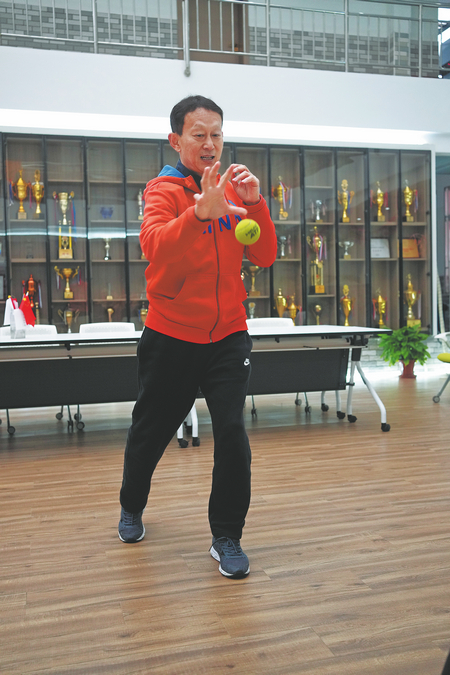Movie gets theatergoers all gloved up


Even as a professional, Wang used to have misunderstandings about the sport.
"When I first got into boxing, I thought it was a sport for strong men," Wang says. But, when women's boxing was included in the 2012 London Olympics, and he saw a greater number of women participating in boxing, he realized it is actually a sport for the brave.
Guang Ming, head coach and director of the Xindoushi (New Fighters) boxing club in Shanghai's Jing'an district, says YOLO has made many people view boxing as a sport that can help them become fit.
"Indeed, more people have come to inquire about boxing classes since the film's release," Guang says. "I think it's good for the popularization of boxing."
Similarly, mixed martial arts, or MMA, has also remained a relatively niche sport in terms of participation, but is gaining increasing public attention due to the success of Zhang Weili, China's first and only UFC champion.
While Zhang has shown the world the strength and power of Chinese women, now audiences nationwide have seen Jia's transformation.
The impact of this film has given Wang more confidence in the development of boxing as a popular sport.
Sun from Xiaolong Boxing Gym agrees. With more people coming to the gym for trial classes, Sun says, "I hope to take advantage of this trend and enable more people to experience boxing's unique appeal."
Hao Jiejing is sure of boxing's growing popularity. She herself was first introduced to another pugilistic form, Thai boxing, five years ago. He now runs Rama Muay Thai Gym in Shanghai, which employs coaches from Thailand, all with professional training.
"There are already many Muay Thai gyms in Shanghai, and most of the time the coaches are fully booked," Hao says.
Since Wang started working as a boxing professor at Shanghai University of Sport in 1993, he has been dedicated to promoting boxing as a sport.
In addition to traveling to participate in the promotion and evaluation of international boxing referees, Wang gives lectures to coaches and referees in China and took part in devising the grading standards for Chinese boxers.
Wang believes boxing has bright prospects to develop in China, as it is a sport with few barriers to entry.
"Training can be conducted at home or in the office, and is not limited by the venue. So, it is suitable for practicing at any time," Wang says.
In addition, Wang has insisted on taking boxing to schools and has encouraged everyone to learn from a young age.
"Due to the need for quick and strong breathing, boxing can also enhance cardiovascular function and improve endurance. At the same time, boxing releases pressure and emotions through the act of punching sandbags," he adds. "Especially for teenagers, boxing is a sport that can improve overall physical and psychological fitness."
Wang reminds practitioners that it is important to choose a professional coach and understand that boxing also needs to be combined with physical fitness and other auxiliary exercise.
"Nonetheless, the opportunity to promote public participation in boxing has actually arrived," Wang says.
Wu Xianjie contributed to this story.
Contact the writer at [email protected]




































